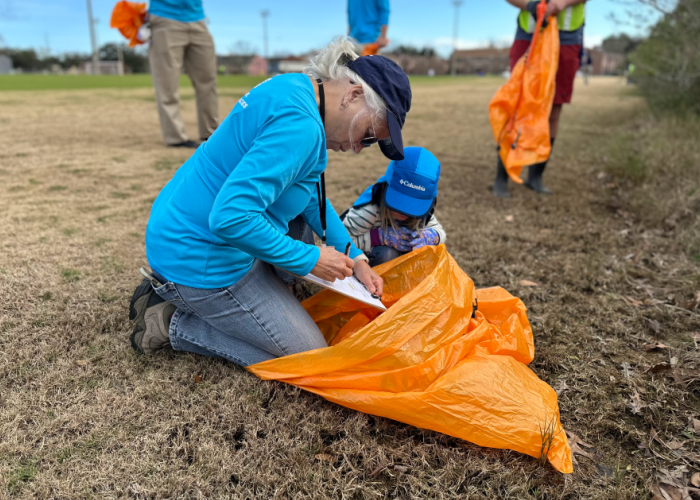Through Michael and Pam Wilson Plastic-Free Waters, we are mitigating plastic pollution impacts via community outreach, conservation fieldwork and citizen science across the state of South Carolina.

Education and Engagement
Plastic-Free Waters is committed to helping resolve the plastic pollution problem, but we cannot do it alone. At public litter sweeps, workshops and outreach events, we include our community members directly in the solutions to keeping our water, wildlife and wild places protected from plastic pollution.

Wildlife Impacts
Plastic impacts the local wildlife we know and love, like sea turtles. Whether it’s plastic ingestion, marine debris entanglement or more, we’re equipped to offer lifesaving care to threatened and endangered sea turtles in our Sea Turtle Care Center™. Visit today to learn how you can make simple changes to help protect these special species.

Citizen Science
No matter where you live, plastic litter is carried through our waterways, polluting our communities and natural habitats. You can be part of the solution by removing litter from your community and contributing your data to the Litter Journal, a project in the South Carolina Aquarium Citizen Science app. The data collected is used to drive conversations, decisions and change around plastic use throughout the state.

Awareness and Action
All data in the Litter Journal is accessible by the public and can be used to promote actionable change in our communities! We have presented this data to local municipalities in support of legislation aimed to mitigate or minimize single-use plastic like bags, carryout containers and cigarette filters, among others. Data has also supported the installation of litter-catching devices in waterways and identified hot spots for future community-based action.

